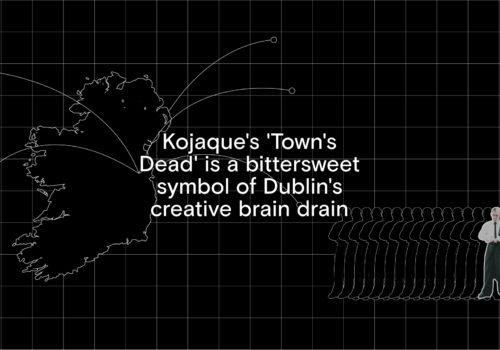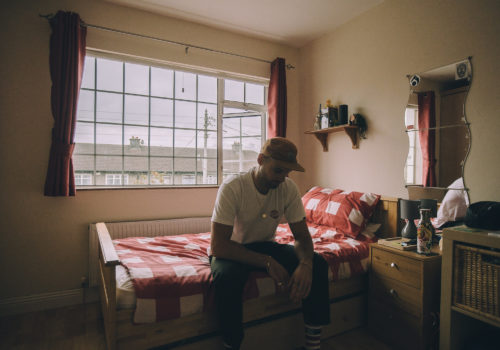22 Questions for 2022: Life & Society
Words: Eva O’Beirne
Photography: George Voronov
Artwork: Paul Smith
Caoimhe Walshe’s photo, her own
District has challenged 22 different organisations and people to ask the questions that matter to them for the year ahead.
From art and culture to labour and housing, we wanted to reach all corners of this little island to see what problems are most pressing to its people in 2022.
In this section we focused on Irish society and the issues that have permeated our lives to the point of normality.
Safe Drug Use

When will we see the legalisation and regulation of cannabis in Ireland?
Only an hour before sitting down to talk to Thomas and Dave from Crainn, Minister for Drugs Frank Feighan told the Oireachtas health committee that decriminalising drugs “isn’t compatible with the Irish legal system”. Crainn of course, believe this is nonsense.
“It’s shocking to say the least, that a minister will use anecdotes rather than facts or science,” commented Thomas. “He’s presented these statements to the committee and ignores the counter-arguments.”
“I don’t know who he was talking to either,” continued Dave. “We represent the largest community of cannbis users in Ireland, there’s nearly 30,000 of us and we haven’t been consulted.”
Crainn started off as a sub-reddit in 2010 and has grown into a thriving community of mainly annoymous cannabis users who reside in Ireland. “We set up a Discord server in 2017, just a couple of us, to discuss cannabis laws and what we could do.
The sub-reddit now has over 28,000 members,” Thomas explained. “We set up a board of directors in September to help ourselves get organised and to help communicate to politicians what we want.”
Crainn has three core pillars: normalisation, education and community. “We want everybody to realise that most people use or have used cannabis. It’s as common as alcohol. There shouldn’t be a stigma about it.”
According to a 2021 poll by the Journal, almost 40 per cent of Irish people are in favour of legalising cannabis for recreational purposes and over 90 are in favour for it being used for medical reasons. A medical cannabis access program has existed in Ireland since 2020, but both Dave and Thomas are skeptical to whether it will be made more accesible.
When talking about the program, Dave had plenty of critiques: “It’s not fit for purpose. It’s extremely limited and even if you’re approved for it, the Government may choose not to pay for your medication which can cost up to thousands.”
“We want everybody to realise that most people use or have used cannabis. It’s as common as alcohol. There shouldn’t be a stigma about it.”
Crainn
The recent Drug Use in Higher Education Ireland survey found that marjiuana was the most commonly used drug by students. So why isn’t legalisation on the cards, if not to prevent dodgy drugs from being taken?
“Legalisation is a pressing issue because currently when you purchase cannabis in Ireland, you don’t know what you’re buying. The best system would be similar to an off-liscence, where you can go in and check where it was grown, what percentage it is, what lab grew it, all the details you don’t get by relying on a black market,” Dave commented.
“And you risk your life being ruined,” Thomas interjected.
Legalisation of marijuana has been an ongoing conversation in EU countries for the past year, with Germany and Malta promising to legalise the drug for recreational purposes in the next twelve months.
Both Dave and Thomas believe that marjiuana legislation will be brought in once Irish politicians realise the amount of revenue that can be made from cultivating the drug. Currently, they both believe that cannabis and cannabis users have been villified by Irish society.
“When people get caught with cannabis in Ireland, the legal advice they’re given is to go to an addiction service to get a lesser sentence. And that’s why our statistics on cannabis usage in Ireland are so skewed,” Dave noted.
“Like any substance, like gambling or alcohol, you can get addicted, but we don’t know how severe marijuana addiction is in Ireland due to this.”
Last year, Crainn launched a campaign to encourage media outlets not to report on cannabis charges due to stigma. “The thing with names and addresses in the papers, is that people don’t realise how devastating it can be. I only became aware of it in the past year,” explained Thomas.
“Once you get caught, your name, address, college, anything can be published. And that would be me gone. I could lose everything. How can you move on from that?”
Between potential US investment to cultivate the drug Ireland to treating chronic pain, legalising marijuana in Ireland appears to have plenty of benefits. Should we become EU leaders when it comes to this issue? Crainn certainly thinks so.
In order to raise awareness about the issue of legalisation, Crainn will be running an information day in Dublin city centre on April 20.
You can check out Crainn’s website here.
Student Welfare
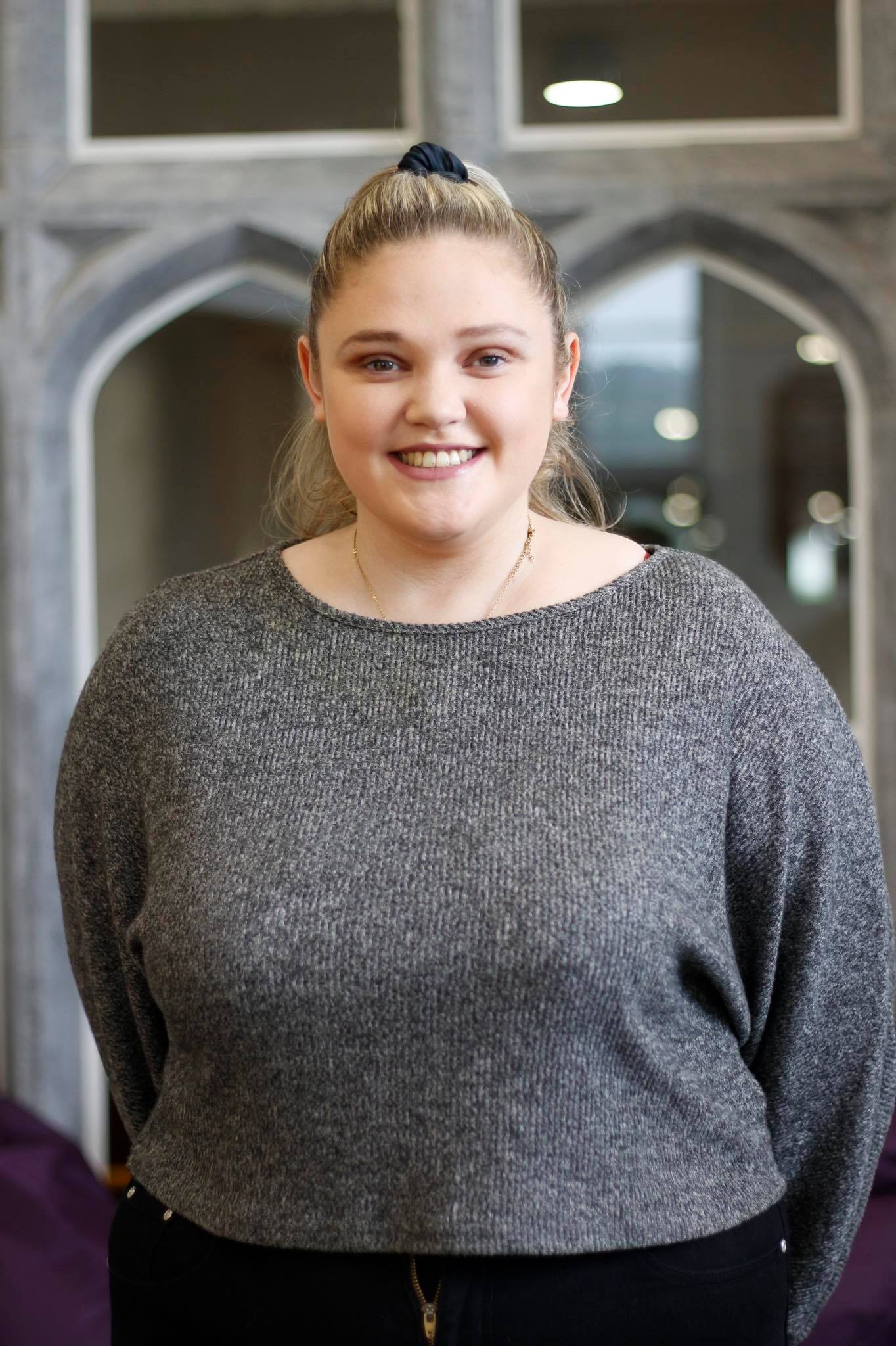
When will Ireland’s college fees be reduced?
In October of 2021, University College Cork made headlines when their student union’s food bank rank out after 50 minutes of it being opened.
Debates were had online as to whether students were being “greedy” or genuinely in need. For UCCSU welfare officer Caoimhe Walsh, the level of inhumanity shown online for students was “heartbreaking. Absolutely heartbreaking.” Caoimhe described the experience as one she “can never forget.”
“The worst part was seeing students arrive at the food bank and having to tell them we had nothing left.”
But this isn’t an isolated incident. Caoimhe explained that student unions all over the country have had to take care of students more than ever amongst accommodation shortages, with high rents causing students to forgo food to afford a place to live. “It’s not a UCC problem, it’s a problem all over the country. I’ve been speaking to other welfare officers and it is terrifying to see how many students can’t afford food.”
When asked about the backlash to the news and the stereotypes pushed on students, Caoimhe spoke about how students “are definitely painted with the same brush, which you simply cannot do. Saying that students use all their money to go out or to drink, it’s a horrible thing to say.”
“If these people who think that way sat in my office for an hour and listened to students and their issues, their perspectives would completely change.”
“You shouldn’t have to choose between a place to live and whether to eat or not.”
The Union of Students in Ireland (USI) launched a campaign in November to challenge the cost of college in Ireland. Called “Fuck The Fees”, the USI underlined the desperation of students and the idea that niceties were no longer necessary.
The issue of online classes and paying for facilities that students couldn’t access was a major area of controversy during the past two years.
“It’s not a UCC problem, it’s a problem all over the country. I’ve been speaking to other welfare officers and it is terrifying to see how many students can’t afford food.”
Caoimhe Walsh, UCCSU Welfare Officer
Irish students currently pay the highest college fees in the EU. The current EU average for college fees is 727 euro which is nearly four times less than the cost of college fees in Ireland. Caoimhe pointed to this fact as one of the primary reasons students were coming to the food bank.
The combination of high college fees, barriers to subsidies and grants, and the housing crisis have caused students to resort to couch surfing or commuting daily from other counties in order to continue their education. The current average cost of student accommodation in Cork is 7,000 euro per year.
“Whether it’s a reduction in fees or rent caps on accommodation, there needs to be a form of financial relief for students. It has to give at some point.”
Caoimhe voiced her own frustration at the lack of clarity to where college funding is going, explaining that it doesn’t manifest in better student welfare for the most part. “A lot of the time you’re left wondering, where is this money going? You see so many college services, student unions and staff trying to provide help without adequate funding.”
Caoimhe noted that financial pressures also contribute heavily to student’s mental health issues, which causes its own problems due to the surplus demand for student counselling services across the country.
Mental Health
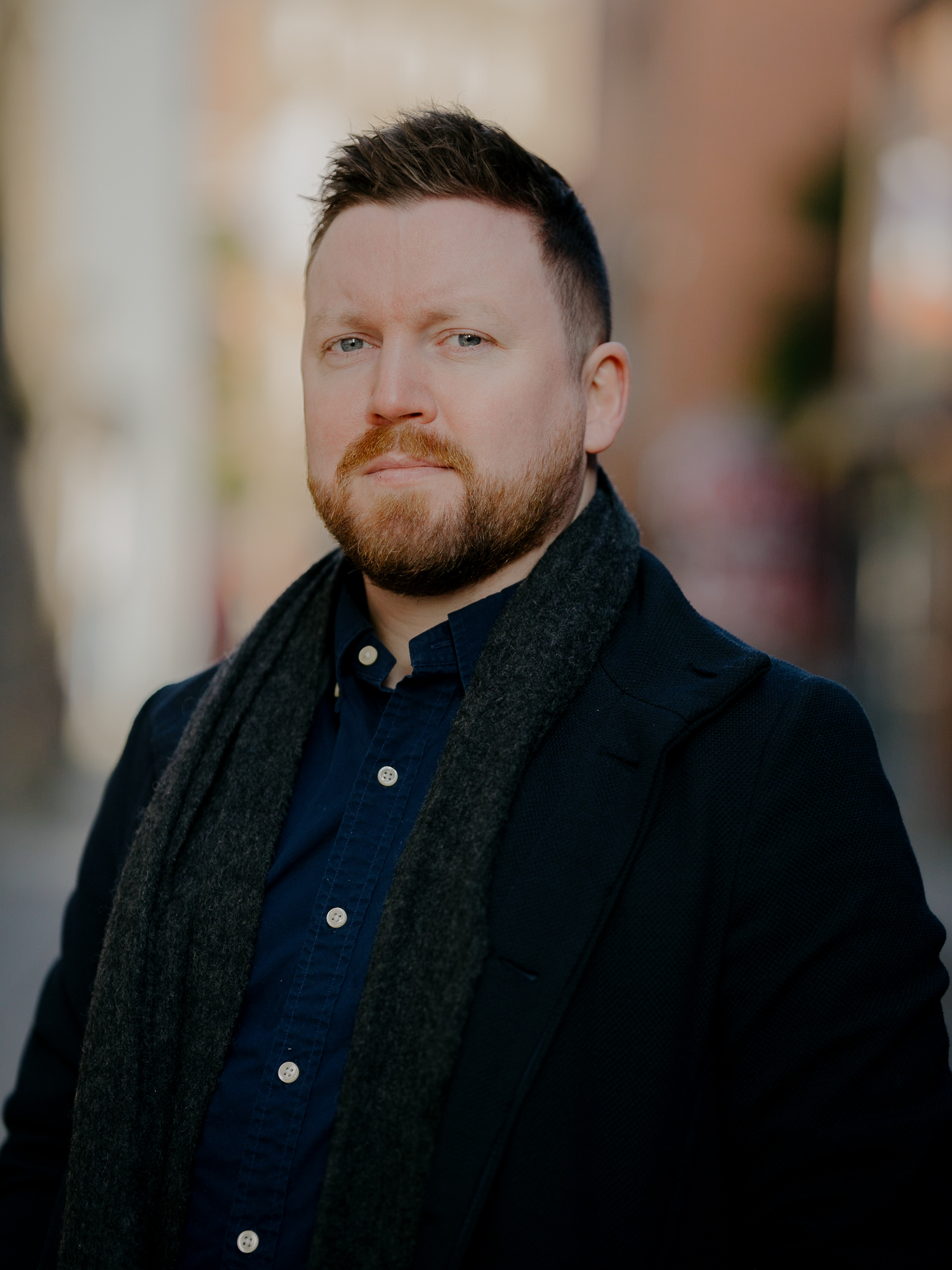
When will Ireland’s health service fund effective primary care for people with mental health issues?
Ian Power is the current CEO of spunout, a service dedicated to supporting young people from 16 to 25. With over seven years in the company, Ian has seen attitudes to mental health in Ireland change dramatically. But what hasn’t changed is the amount of services available.
The HSE Performance Report for January-March 2021 shows that more than 10,800 people, including adults, are waiting to see a psychologist – with more than half waiting for over a year. Ireland also has the third highest rate of mental health illness in Europe.
Ian pointed out that the next generation will be the first to be less well-off than their parents, noting that this will have a large strain on mental health services in the country.
But more immediate challenges have faced younger members of society in recent years. In 2020, spunout emerged as a lifeline for secondary school students, especially those sitting their Leaving Cert exams. Uncertainty turned into extreme anxiety about their futures as the exams were eventually cancelled: “In 2020 in particular, not knowing what was going to happen was a cause of extreme stress.”
“What we encouraged young people to do was focus on what they could do, what they had the power to prepare for. It was helping them realise that you can’t worry about things you can’t control.”
“We had an Instagram live to help guide students through the Leaving Cert for that year, announced it around noon the day of, very last minute but over 10,000 students watched that night.”
The sudden lifting of restrictions has been another source of mental health difficulties for many, according to Ian. “It can feel like a bit of a whiplash, and I’m not surprised that people are anxious about everything opening up.”
The Text 50808 service is another passion project of Ian’s. Launched in June 2020, the service has conducted over 90,000 anonymous conversations with people experiencing emotional difficulty: “I was delighted to get it out there when we did. A texting service at least gives the option to people who may not be comfortable calling a helpline or don’t have a safe space to do so.”
“From young people texting from the living room with their parents, students texting at school or domestic violence survivors, it’s a way of reaching out whenever you need to. It’s a service for everybody, not just teenagers.”
“If the health service can dramatically restructure itself to cope with a major infectious disease, it can change to cope with the demand for mental health support.”
Ian Power
The treatment of those with mental health issues in Ireland in the past is a difficult conversation to have. Ian acknowledges that frequent institutionalisation and inadequate treatment have built a society where people simply are too afraid to voice how bad their mental health is.
Dismantling stigma around mental health and reaching out is a key priority for Ian. Providing adequate services for everybody and the concept of choice, he believes, is one of the main ways this problem can be solved. But to provide these services, more funding has to be made available.
The HSE currently fully fund the 50808 service, but Ian predicted that he wouldn’t be surprised if the demand for mental health services rises by up to 40 per cent this year. “There needs to be a massive investment in primary care psychology. We can’t rely on services like CAHMS to help people because they should be a last resort.”
“If the health service can dramatically restructure itself to cope with a major infectious disease, it can change to cope with the demand for mental health support.”
The burden of providing Ireland’s mental health services has fallen to charities and volunteer groups. Is it realistic to think a radical change will happen soon?
Overall, Ian is extremely hopeful for how attitudes towards mental health in Ireland will change in the coming years: “There’s this new awareness amongst young people about all the inequalities in society. From gender-based violence to racism, there’s an awakening that will hopefully dismantle structures that need to go.”
Ian finished up his interview with calling for people to be kinder to themselves and to be aware about adjusting back to “normal” life. He also asks Irish society to be honest with their feelings, as they might not be aware how much keeping things in may be affecting them in the long-term: “You’re not taking away from anybody else for reaching out. Use a service or a helpline and you’ll realise how much weight you’ve been carrying around.”
You can check out spunout’s services here.
Rural Ireland
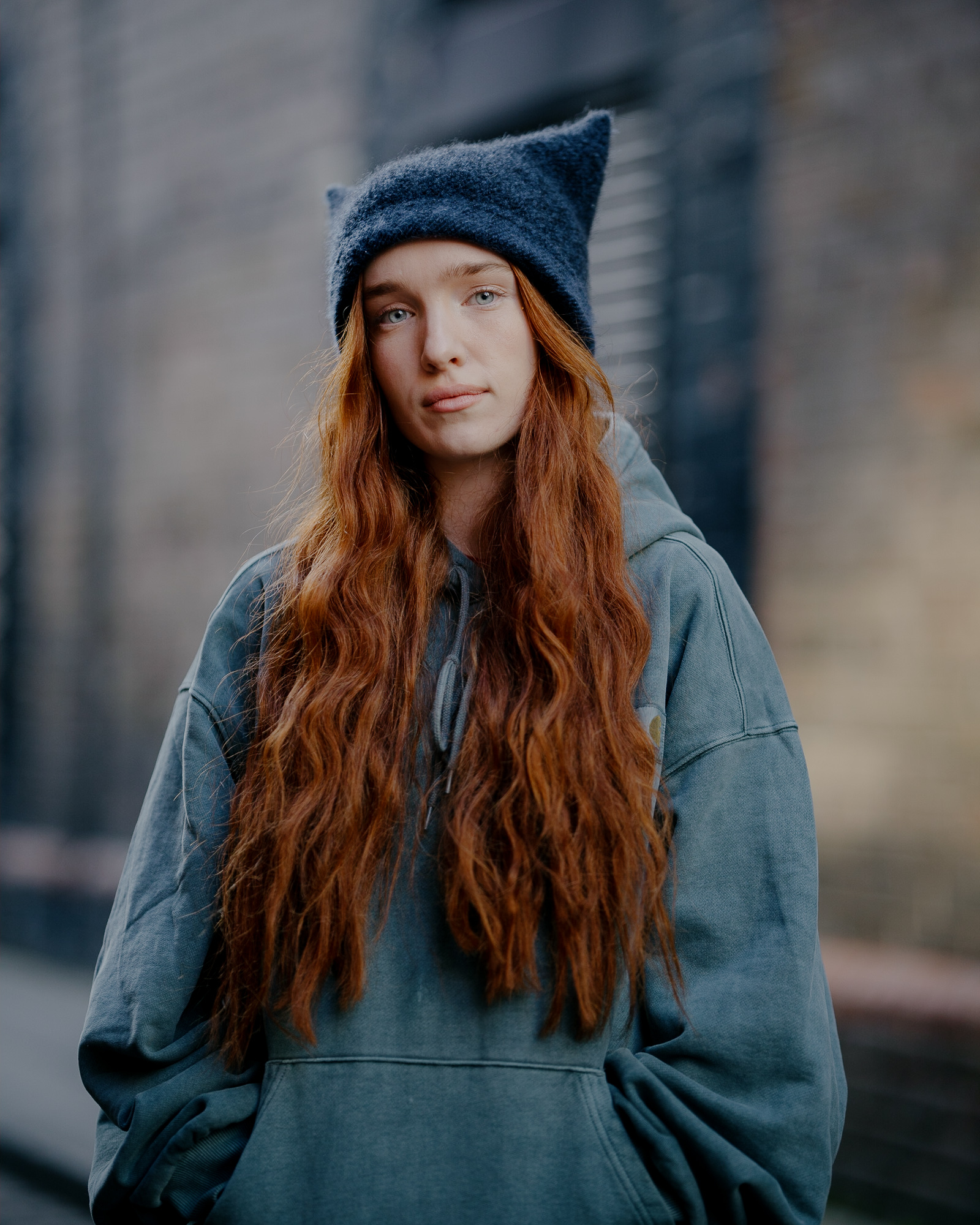
When will Irish creatives get enough opportunities so they can stay in their hometowns?
Roisín Berkley, a harpist from Mayo, described commuting between Dublin and her rural home town as “living two lives.” As with many other creatives, Roisín has chosen to move abroad for better opportunities, but as she explained with her question for 2022: “If I could have stayed in Mayo, I would have. It’s just not possible to have the life I want there.”
Music has always been present in Roisín’s life – her grandfather was an accomplished jazz pianist from Dublin, but she is the first member of her family to dedicate themselves to Irish traditional music. Despite her love for her craft, she notes that she wishes there was more emphasis on enjoying trad music in the Irish education system: “It can be very rigid, based on skill and grades rather than learning to appreciate the music.”
“You’re handed a tin whistle in primary school and for a lot of people that’s their only interaction with trad.”
Roisín explained how she moved to Dublin to go to college, but she is infinitely grateful for the place she grew up: “Living in rural Ireland has given me so much opportunity and inspiration that no other city could.”
City living and travelling for gigs became less important over the pandemic, but now that the flood gates have seemingly been opened for normal life to return, Roisín expressed that she wouldn’t be surprised if creatives continue to emigrate, despite government efforts to protect the arts.
“There’s opportunities, but they’re one in a million type opportunities. So many of us have to move away to make the connections we need.”
“For work, to make money and further your career, you have to go to the city and make connections there.”
Roisín is best known for her collaborations with Dublin-based artist Gemma Dunleavy. “You may associate the harp with twinkling, light sounding noises but I want my sound to be loud; powerful almost. How I’m feeling causes my sound to evolve.”
Currenly, Roisín moves between Dublin and Mayo for college. She explained that often it feels like she has two lives, with the one in Mayo being much calmer. “Maybe when I move abroad I will feel more balanced. It sucks because a lot of people don’t want to leave. I wish I had a passion that would allow me to stay here.”
“There’s opportunities, but they’re one in a million type opportunities. So many of us have to move away to make the connections we need.”
Roisín Berkley
Government efforts to introduce a form of standardised pay for creatives and artists during the pandemic have not gone unnoticed, but Roisín wonders if those kinds of supports will remain, especially later in 2022.
You can check out Roisín’s music in collaboration with Gemma Dunleavy here.
Social Media
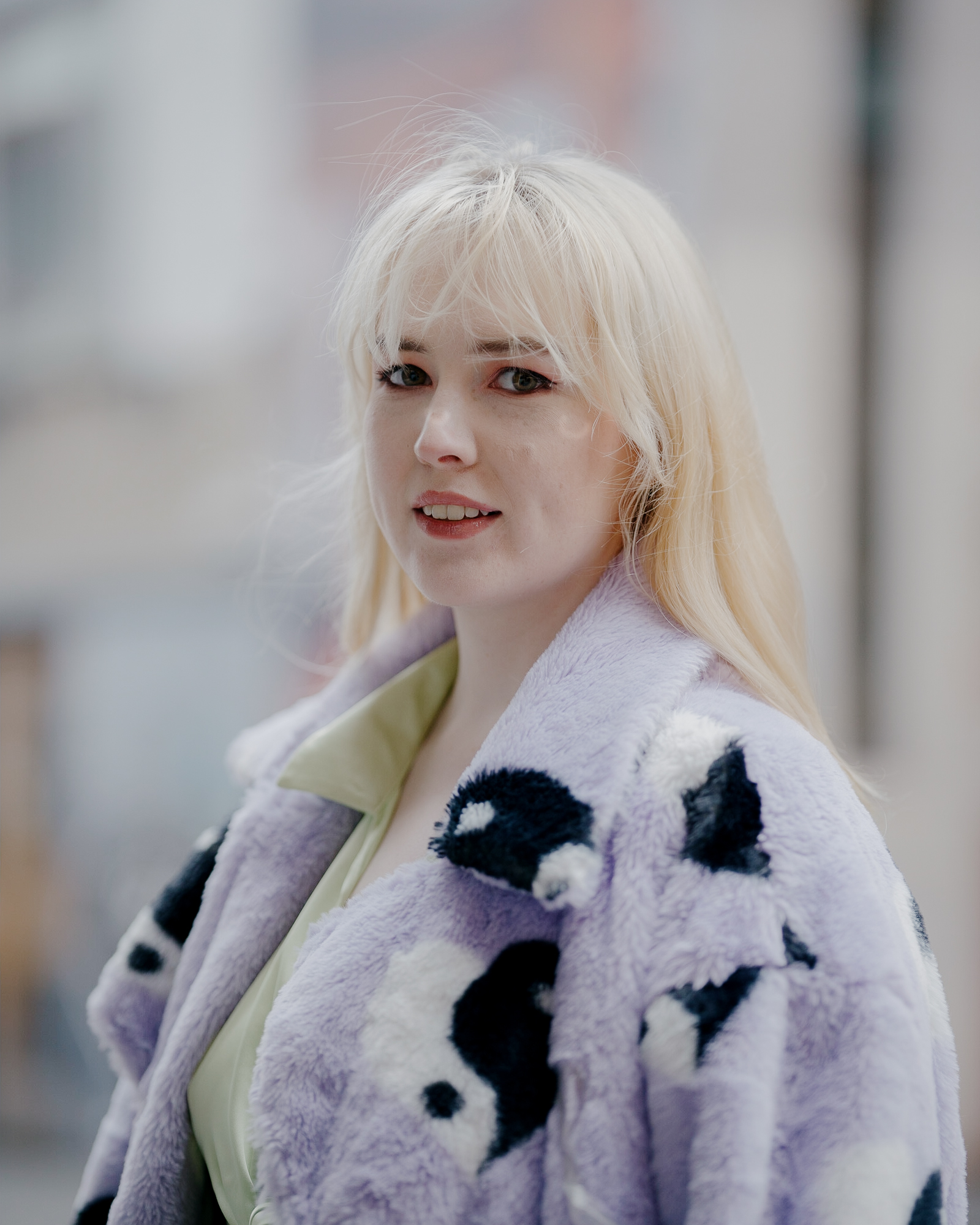
When will women have safe experiences, both online and offline?
Lullie, also known as Sophie Fitzgerald is a recording artist, set designer and graphic designer that has been immersed in Dublin’s music scene since her teens. Observing the growing appreciation for female creatives in Ireland, she wonders if Ireland will realise how pressing it is to challenge the treatment of women in online spaces.
“It’s hard as a female creative online, knowing that my physical appearance is important for advertising my songs. It has a huge toll on your self esteem. Are my looks more valuable than my music?”
Lullie released her first single in the first week of lockdown 2020, describing the experience as “the first time in my life where I had the time to do what I wanted to do.” She is determined to create two distinct lives for her online self and offline self to avoid toxicity and to remove pressure from herself to be perfect. “I feel like I can’t say much without being criticised, I can’t randomly tweet about being sad or heartbroken because what if a promotor sees it? But in a way, it’s much healthier not to rely on venting so publicly on social media.”
Looking to female artists like Taylor Swift and Olivia Rodrigo who are constantly criticised for expressing emotion through art, Lullie agreed that women simply need to be able to express themselves without a running commentary on either their inspirations or their lives: “The public have turned a lot of female artists into reality stars rather than recognising them for their talents.”
Being a creative has dramatically changed due to the pandemic. Creating projects in socially distanced spaces has removed the casual coffee meetings and challenged creatives to make do with very little.
But where female creatives may have been limited in resources, they’ve experienced a new wave of demand for gigs and jobs. Lullie pointed to the report released by WhyNotHer as a primary reason for female artists appearing in more Irish festival line-ups and venues: “They’ve done invaluable work. The statistics were what we already knew, but we didn’t have the proof. When will this outrage turn into appreciation and understanding that we need to have women-friendly spaces both online and offline?”
“When will this outrage turn into appreciation and understanding that we need to have women-friendly spaces both online and offline?”
Lullie
Lullie has spoken out about misogyny in the Irish music industry multiple times online and the lack of awareness around abusers in positions of power. “It is far too easy to be painted as the angry feminist,” she explained. “There’s so many line-ups and artists that are featuring women for the first time, but it needs to be a continuous energy. There needs to be a social media awareness and support to let these bookers know that this is the change we want.”
Lullie looks to 2022 as the year Ireland might be able to realise how important it is to dismantle misogyny, not just in how we talk or perceive women, but to make an active change in how we can support them in online spaces.
You can check out Lullie’s music here.
Elsewhere on District: 22 Questions for 2022: Politics & Activism
